Stretching Alone Can Change P1 Bone Shape in Patients with Camptodactyly
Filed under Reviews
Woo Hong, S. Kim, J., Sang Kwon, O., Ho Lee, M., Sik Gong, H., Hyun Baek, G., (2019). Radiographic Remodeling of the Proximal Phalangeal Head Using a Stretching Exercise in Patients With Camptodactyly. J Hand Surg Am, 1.e1-1.e10
The Skinny – Camptodactyly is a congenital, nontraumatic flexion contracture of the PIP in fingers other than the thumb. Type 1 Camptodactyly ( Isolated anomaly in children <36 months) also includes volarly angulated and beak-shaped flat proximal phalangeal head. This study investigated the impact of a stretching-only camptodactyly treatment plan on restoration of Proximal Phalangeal head angulation as well as joint contracture.
In The Weeds – In a retrospective cohort study using radiographic series, 48 digits in 20 patients <36 months with >12 months of follow up were studies. 2 indexes were created to measure Head Angle (HA) and Head Triangle Ratio, or head shape (HTR).
Camptodactyly Stretches: Parents conducted a minimum of 20 sessions/day of a minimum of 5 minutes/session on affected fingers. Wrist and MCP were held in extension to increase FDS and FDP tension while force was applied to DIP joint flexion crease. This was done for 12 months.
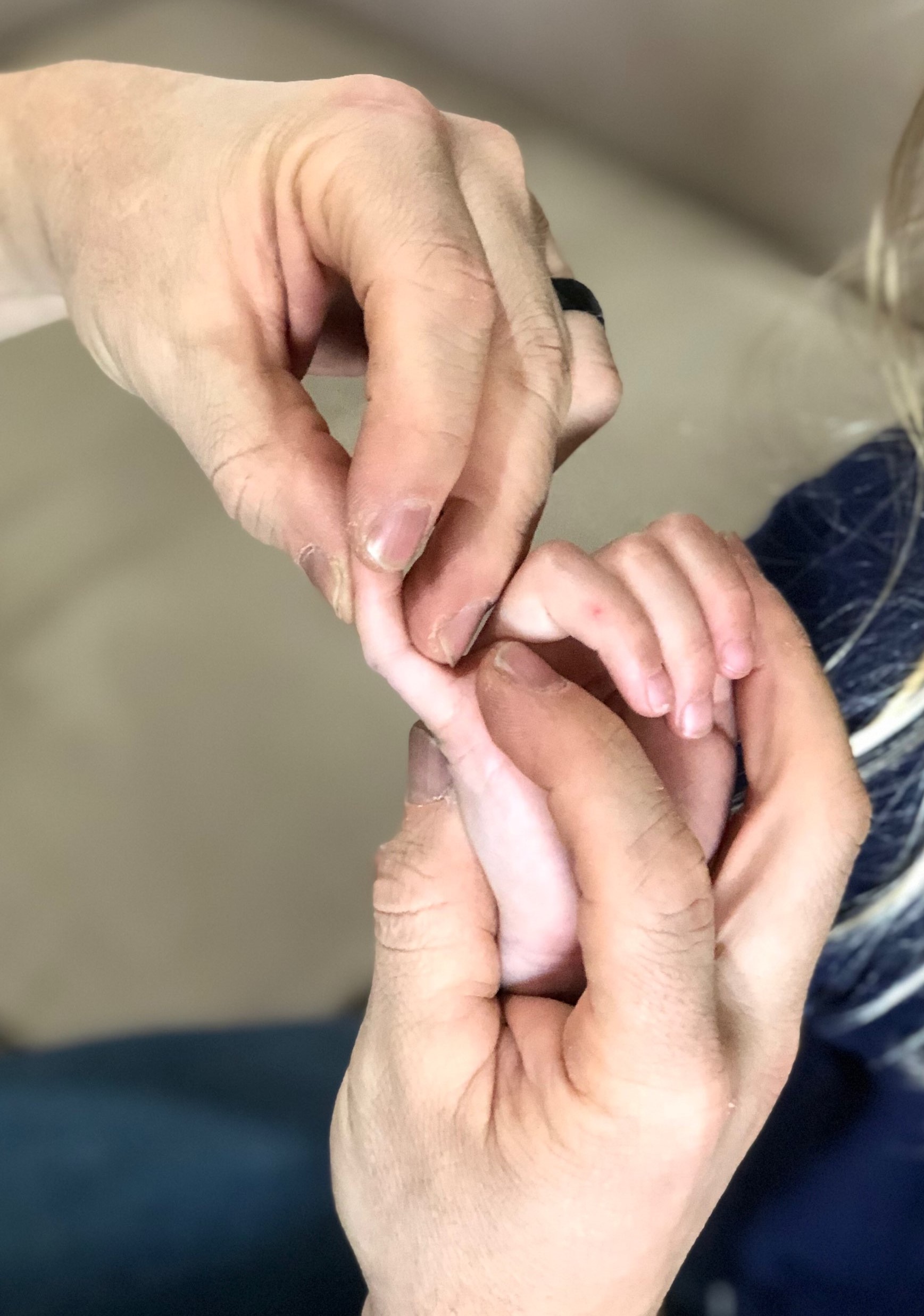
Results: “roundness and concentricity of the proximal phalangeal head was restored in all cases” with statistical significance. Flexion contracture of the PIP decreased from 34 degrees ± 13 to 6 degrees ±7.
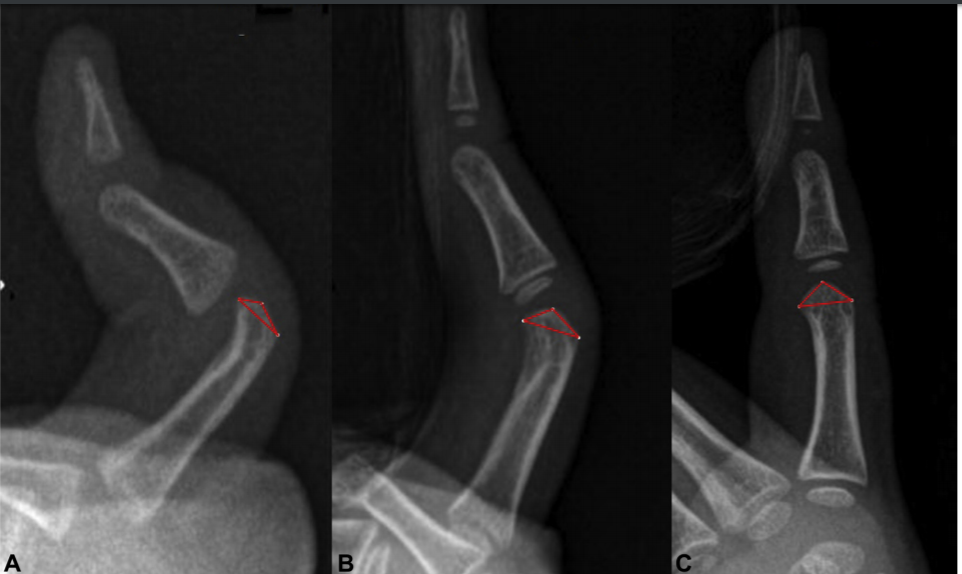
Bring it Home – Radiographic imaging indicates that stretching alone can restore the shape and angulation of the proximal phalangeal head and decrease flexion contracture. There was no correlation between contracture angle and boney shape throughout the study. This study had significant intra and inter-rater reliability for HA and HTR measures and control group illustrated that bone growth alone did not account for change in these parameters.
While other types (i.e. ages) of camptodactyly need to be studied, this study supports the strong value in stretching exercises for this diagnosis (camptodactyly exercises). Younger patients are particularly more receptive due to soft tissues being more extensile and the joint is more flexible. While the stretching protocol in this study is extensive, and may not be maintainable by many families, this approach is highly effective in achieving results non-surgically.
2 Comments
Leave a Comment
More To Read
Management of the Stiff Finger: Evidence and Outcomes
Title: Management of the Stiff Finger: Evidence and Outcomes Reference: Yang, G., McGlinn, E. P., & Chung, K. C. (2014). Management of the stiff finger: Evidence and outcomes. Clinics in Plastic Surgery, 41(3), 501–512. https://doi.org/10.1016/j.cps.2014.03.011 Article Review By: Tommi Hintnaus The Skinny: This study focuses on understanding and managing finger stiffness, a condition characterized by…
Carpal Fractures: A Brief Overview
Carpal fractures account for 8% of fractures in the upper extremity. The carpals are situated between the (distal radius and ulna) and the metacarpals. They make up the proximal row- Scaphoid, Lunate, Triquetrum, and Pisiform, the distal row- Trapezium, Trapezoid, Capitate, and Hamate. Here are some of the most common carpal bone fracture Scaphoid…
5+ Common Mallet Finger Splints
Finger orthoses can be tough, and the mallet finger orthosis is no exception. The protocol for 15 degrees of DIP extension with mallet fingers is tricky to manage while making a splint. Small splints on little fingers are also tricky to get sized just right and with strapping in the right places. Ask any experienced…
EDS 101: Understanding Hypermobility in the Hand Therapy Setting
EDS in the Hand Therapy Setting General Overview:Ehlers Danlos Syndrome (EDS) is a group of heritable connective tissue disorders caused bygenetic changes that affect collagen production, the protein responsible for strength and elasticityin skin, ligaments and tendons (The Ehlers Danlos Society, 2016). There are thirteen forms of EDS that each have their own set of…
Sign-up to Get Updates Straight to Your Inbox!
Sign up with us and we will send you regular blog posts on everything hand therapy, notices every time we upload new videos and tutorials, along with handout, protocols, and other useful information.
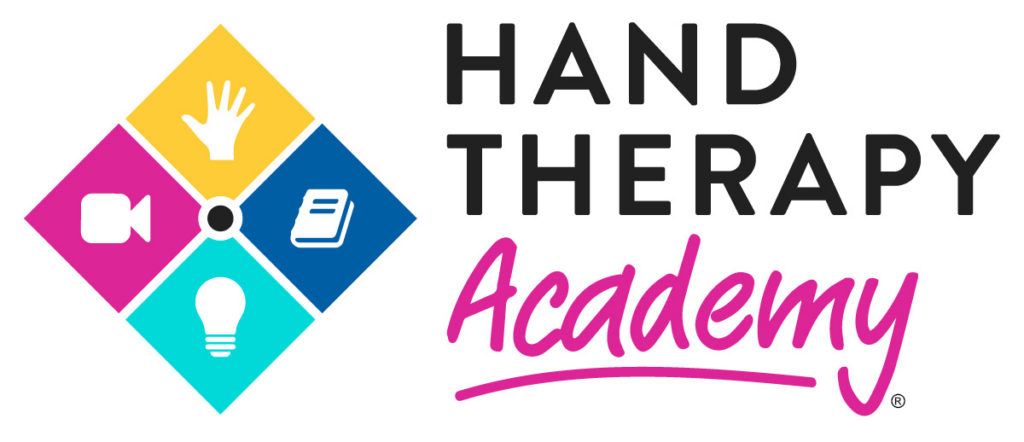
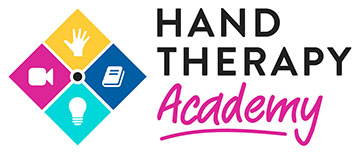
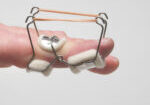
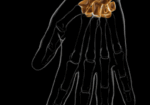
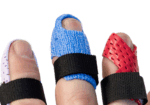


Is it possible for me to obtain a copy of the full article?
We can’t distribute the article itself, but the reference is provided so you can still find it. If you have a connection at a local university they may be able to pull it for you. Or Google Scholar will often have articles available in full print for viewing.